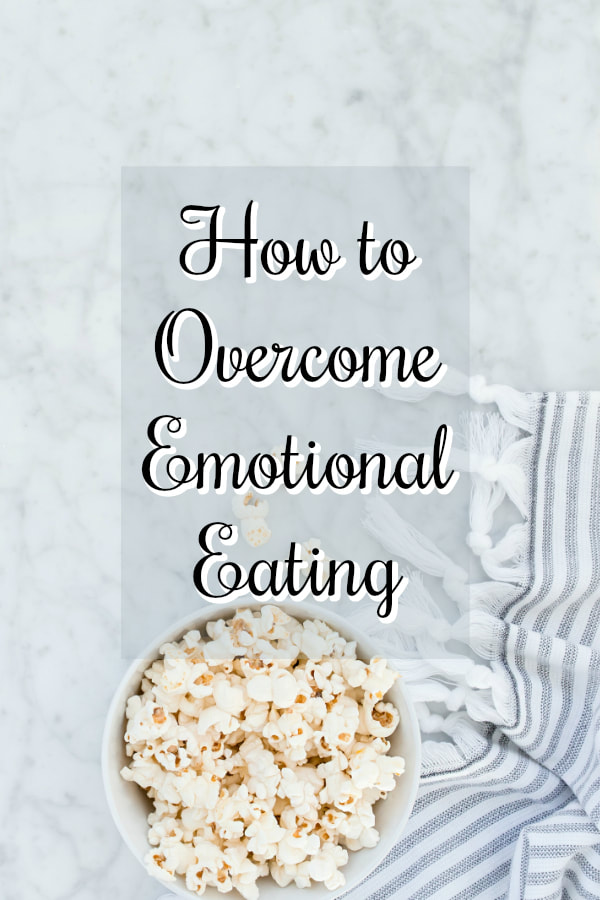|
Girl, let's be honest. How many times have you found yourself eating, not because you were physically hungry, but instead because you were stressed, tired, bored, anxious, angry or __________ (insert appropriate emotion here)? You just might be like me: an emotional eater. But, you don't have to live like this! There are ways to overcome emotional eating. When we use food to make us feel better, it sets us up for a vicious cycle of possible weight gain, followed by guilt, followed by even more emotional eating. So, here are a few simple tools to use to stop this cycle! Are You An Emotional Eater?How do you know if you’re eating for emotional reasons? Try this self-test. For the following, answer each of the following five questions with a simple “yes” or “no.”
Three of the Emotional States That Lead to Emotional EatingSadness, anxiety, and anger are the three emotional states most often seen that can lead to bouts of emotional eating. Some people eat to celebrate (hello, birthday cake), to quell boredom (think mindless snacking while watching TV), to reward themselves (“I just ran 7 miles, so I can eat a fully-loaded cheeseburger and fries”), but when it comes to patterns of emotional eating, most stem from sadness, anxiety, or anger. Sad Eating Let’s face it: When heartbreak or loneliness hits, eating that tub of ice cream seems like a good idea. A bit of sweetness to drown out the sorrow… Before you know it, you’re caught in a self-perpetuating negative cycle that can be very difficult to escape. You eat because you’re sad, then you feel even more blue because you’ve eaten so much. This can lead to a “what-the-heck” attitude, increasing the likelihood of overeating when the next bout of the blues strikes. Healthy alternatives to sad emotional eating: 1. Express yourself: Your melancholy mood was probably caused by an upsetting incident. Get it off your chest by talking about it with someone you trust. If nobody is available to talk, try writing down your feelings. 2. Move: Battle the blues by moving your body and getting your heart pumping. Even doing 30 minutes of moderate exercise can boost the “feel-good” chemicals in your brain. 3. Give yourself permission to let it out: Light some candles, take a hot bath, listen to sad music, cry until you run out of tears. Allowing yourself to feel sad will help you process. Or, put on headphones, turn up the music, and dance, or punch pillows… pick a constructive way to emote that’s not eating. Anxious/Stress Eating Many of us eat to relieve our stress or anxiety. Research points out that emotional distress increases the intake of specific foods — in particular, those that are high in fat, sugar, or both. An excessive intake of these types of highly palatable foods shares similarities with the effects on brain and behaviour that are seen with some drugs of abuse, according to research published in the journal Nutrition. Healthy alternatives to anxiety/stress emotional eating: 1. Stick to a regular, healthy sleep routine. If you’re not sleeping well because you’re stressed, the lack of sleep can result in poor food choices. Research shows that people who got insufficient sleep for several consecutive nights increased food intake to keep them going. When they returned to getting adequate rest, they stopped eating as much — particularly carbs and fats. 2. Do something relaxing and calming. We all have different ways of relaxing. The next time you feel stressed and anxious and instinctively turn to food, resist the urge to run to the cupboard or fridge, and instead practice a relaxing activity. Consider trying meditation, yoga, or even just pause for a moment to take some deep breaths. Angry Eating Unfortunately when we stuff our anger down with food this doesn’t get rid of our anger. It simply buries it. If we don’t deal with the emotion, it will keep popping up. Healthy alternatives to angry emotional eating One way to get out of the angry eating trap is to delay eating — even 10 minutes will do — and to sit down, take a deep breath, and tune into what you’re really feeling. Ask yourself the following questions and patiently work your way through the answers.
Looking to learn to heal your relationship with food? End emotional eating? Lose weight happily, without deprivation or diets? Join our Find Food Freedom Project! Get the details here!
0 Comments
Leave a Reply. |
Categories
All
Archives
September 2018
|





 RSS Feed
RSS Feed